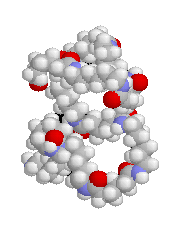Making Best Use Of the Possible of Polymers: Discover the Multifaceted Advantages and Practical Utilizes
In the large landscape of product scientific research, polymers stand apart as versatile substances that have penetrated nearly every facet of modern life. Their application extends different industries, from production and building to medical care and modern technology. The multifaceted advantages and useful uses polymers remain to develop, supplying ingenious solutions to complicated challenges. By checking out exactly how polymers can boost product resilience, drive sustainability campaigns, transform health care remedies, and pave the means for future technological improvements, we can uncover a world of opportunities waiting to be utilized.
Significance of Polymers in Modern Industries
Polymers play a pivotal duty in modern-day markets, serving as versatile products that drive advancement and efficiency throughout a broad array of markets. The electronics sector benefits from the shielding properties of polymers, necessary for manufacturing circuit boards and electronic tools. Their adaptability, longevity, and cost-effectiveness make polymers essential in modern-day manufacturing processes, promoting advancements and driving development in numerous industries worldwide.
Enhancing Product Toughness With Polymers
With an emphasis on longevity and durability, incorporating innovative polymer technologies into item layout has become a foundation of boosting durability in contemporary manufacturing procedures. Polymers supply a large range of residential properties that add to the total resilience of products. One essential benefit is their resistance to deterioration, chemicals, and weathering, making them excellent for usage in various industries where exposure to harsh conditions is typical.
Additionally, polymers can be customized to satisfy specific durability needs, permitting makers to customize items according to their planned usage and expected life expectancy. By integrating polymers into product components, manufacturers can enhance strength and influence resistance, lowering the chance of damage or use gradually.
Furthermore, polymers are lightweight yet durable, providing resilience without adding unneeded weight to items. This characteristic is particularly advantageous in industries such as aerospace and auto, where light-weight materials are vital for improving gas performance and general performance.
Sustainability Innovations Via Polymer Development
In the realm of modern-day production and product layout, the ingenious application of polymers is driving considerable advancements in sustainability techniques. Polymer advancement plays an important role in boosting sustainability by providing solutions that lower environmental influence across numerous markets. One key facet where polymers stand out is in allowing the development of light-weight yet resilient products that contribute to sustain effectiveness in transport and decrease total energy intake. Furthermore, the recyclability and biodegradability of particular polymers additionally advertise sustainable techniques by reducing waste and air pollution.
Additionally, innovations in polymer technology have brought about the creation of bio-based and renewable polymers, originated from all-natural resources such as plants, that supply a more sustainable option to standard petroleum-based plastics. These environmentally friendly polymers not only help in reducing dependence on nonrenewable fuel sources but likewise reduce greenhouse gas exhausts throughout manufacturing. By incorporating these cutting-edge polymers right into manufacturing processes, companies can reduce their environmental footprint and move towards more sustainable practices, aligning with worldwide initiatives to fight climate change and advertise a round economic situation.
Polymers in Healthcare: Revolutionizing Medical Solutions

Among the vital locations where polymers are making considerable strides is in the development of targeted drug distribution systems. By enveloping medicines within polymeric nanoparticles or micelles, researchers can boost medication stability, enhance bioavailability, and allow controlled release, leading to a lot more reliable treatment regimens with minimized negative effects.
Furthermore, polymers contribute in the area of regenerative medicine, where they are made use of to produce scaffolds that mimic the extracellular matrix, supplying support for cell development and tissue regrowth. This innovation holds tremendous pledge for repairing harmed body organs, promoting injury healing, and progressing individualized medicine strategies.
Fundamentally, the assimilation of polymers in health care is driving development, improving treatment efficiency, and eventually boosting client end results in ways formerly believed unattainable.
Future Applications and Developments in Polymer Technology
Progressing at the forefront of scientific exploration, polymer technology proceeds to lead the way for groundbreaking applications and technologies forming varied markets. In the world of sustainable product packaging, biodegradable polymers are obtaining grip as eco-friendly choices to conventional plastics. These polymers damage down naturally, minimizing the ecological impact of single-use items. Additionally, in the field of electronic devices, conductive polymers are revolutionizing wearable innovation and adaptable electronic devices. Their special homes permit for the growth of elastic circuits and sensing units, enabling brand-new possibilities in health care tracking and wise apparel. In addition, polymer nanocomposites over at this website are improving the mechanical and thermal buildings of products, causing more powerful and lighter parts in aerospace and automotive sectors. Looking in advance, researchers are exploring the potential of shape-memory polymers for applications in robotics and biomedical tools, where materials that can "bear in mind" and change to their initial shapes provide exciting possibilities for innovation. As polymer technology remains to advance, the future holds countless chances for groundbreaking improvements across various fields.
Final Thought
